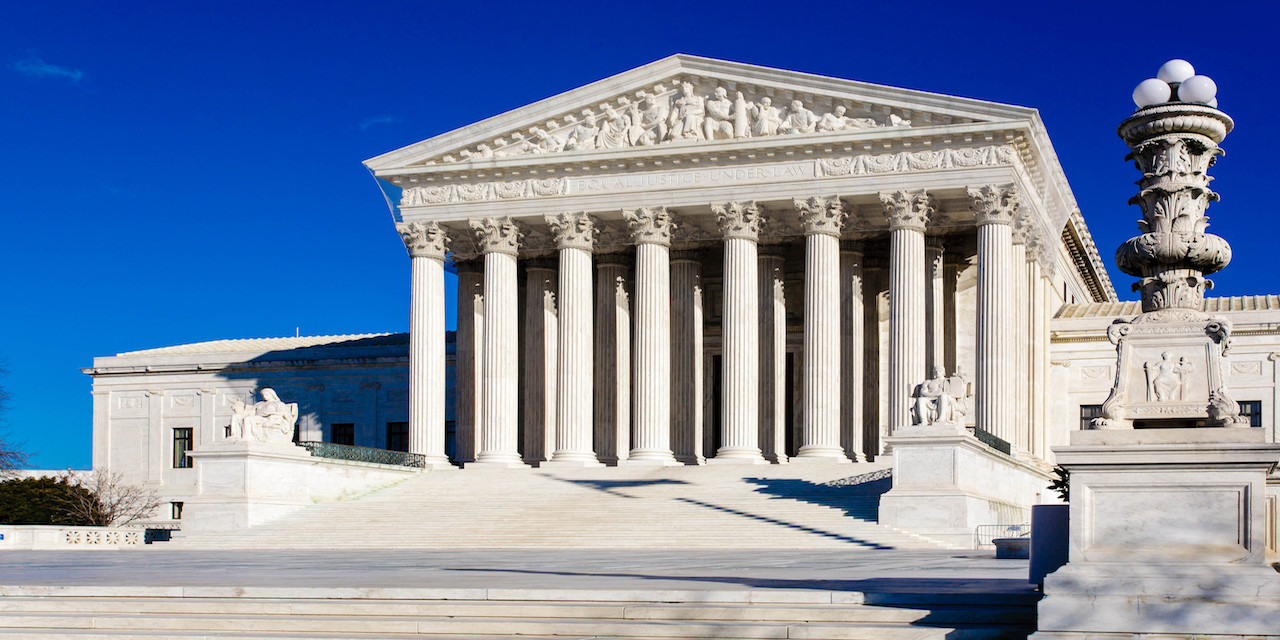Across the country, more than three dozen class action lawsuits, involving potentially tens of thousands of people, have accused public worker unions of wrongly forcing non-union workers to pay fees, in violation of their constitutional rights.
Now, lawyers from a right-to-work legal foundation, representing a Chicago Transit Authority worker, have asked the U.S. Supreme Court to clear up the question of whether those unions should be made to repay those fees, collected under unconstitutional state laws and policies.
On July 9, attorneys representing Benito Casanova filed a petition with the Supreme Court, asking the justices to take up his case, and declare lower federal courts have consistently misinterpreted and misapplied a federal law and a prior Supreme Court decision in allowing unions to avoid repaying the unconstitutional fees.
Casanova filed a class action suit in January 2019 in Chicago federal court against the International Association of Machinists union Local 701. Casanova has been represented in that action by attorneys with the National Right to Work Legal Defense Foundation, of Springfield, Va. He also has been represented by attorney Christopher Wadley, of the firm of Walker Wilcox Matousek LLP, of Chicago.
According to the lawsuit, Casanova has worked for the CTA since 1989. Throughout his employment, Casanova has declined to join the IAM Local 701. However, according to the complaint, the IAM and CTA have still forced Casanova to pay so-called “agency fees” to the IAM, ostensibly to compensate Local 701 for its expenses in representing him as part of its bargaining unit at the CTA.
While not the same as union membership dues, the agency fees can still nearly equal those dues.
In 2018, however, the Supreme Court, in a class action led by former Illinois state employee Mark Janus, declared such agency fees unconstitutional, as the court’s majority said they violate non-union workers’ free speech and free association rights, by forcing them to give money to unions as a condition of employment.
In his complaint, Casanova asserted the Janus decision should be interpreted to require the IAM to repay him and all other non-union workers who paid agency fees to the IAM.
The reasoning was similar to dozens of other class actions filed by non-union workers against unions in federal courts in Chicago and elsewhere, including a class action led again by Mark Janus.
However, in all of the cases, the courts have denied the plaintiffs their refunds, ruling the unions should be allowed to keep the money because, when they collected those fees, they relied in “good faith” on laws they believed were constitutional. The unions have noted that from 1977 to 2018, the Supreme Court had held the collection of agency fees was constitutional.
Janus’ refund case suffered defeat at both the federal district court and at the U.S. Seventh Circuit Court of Appeals.
Relying on those decisions, Casanova’s case was also dismissed by both courts.
In appealing to the Supreme Court, however, Casanova says those lower courts have all twisted the law and a prior Supreme Court decision in creating the “good faith” defense for the unions.
Casanova’s lawyers point to the language of the federal law known as Section 1983, 42 U.S.C. § 1983, which generally establishes that anyone who uses the cover of a state or local law to deprive others of their constitutional rights “shall be liable” to those victims.
They said the courts, instead, relied on that language, in combination with the Supreme Court’s decision in the 1992 decision in Wyatt v Cole, to rule that the unions could rely on a “good faith” defense to escape liability for otherwise violating non-union workers’ constitutional rights, because the unions were relying on a state law they believed gave them the authority they needed to collect the fees.
Casanova’s lawyers assert the lower courts’ rulings in favor of the unions “turned Section 1983 on its head.” They also argued the lower courts misread the Wyatt decision, because that decision only provided such a good faith defense to local government agencies against claims they acted with malice and without probable cause when taking otherwise unconstitutional action against people.
Allowing the unions to win with this defense would then allow a vast array of other potential defendants who act unconstitutionally to use the “good faith” defense to escape liability in court for their actions. This could include municipal governments, they said, who otherwise could not claim so-called “qualified immunity,” a legal principle that is often used to shield police officers and some other government officials from lawsuits over their official actions.
“The Seventh Circuit and other courts are now further stretching that law beyond its breaking point by creating from whole cloth a defense to Section 1983 for defendants who lack qualified immunity,” Casanova’s team argued.
In this case, Casanova argued, allowing the unions to claim the good faith defense would be akin to forcing “victims of constitutional violations” to “for the … unconstitutional conduct.”
“It is not fair to have Casanova pay for the IAM’s unconstitutional conduct,” his lawyers argued. “Equity favors requiring the IAM to return the monies it unconstitutionally seized from him.”
